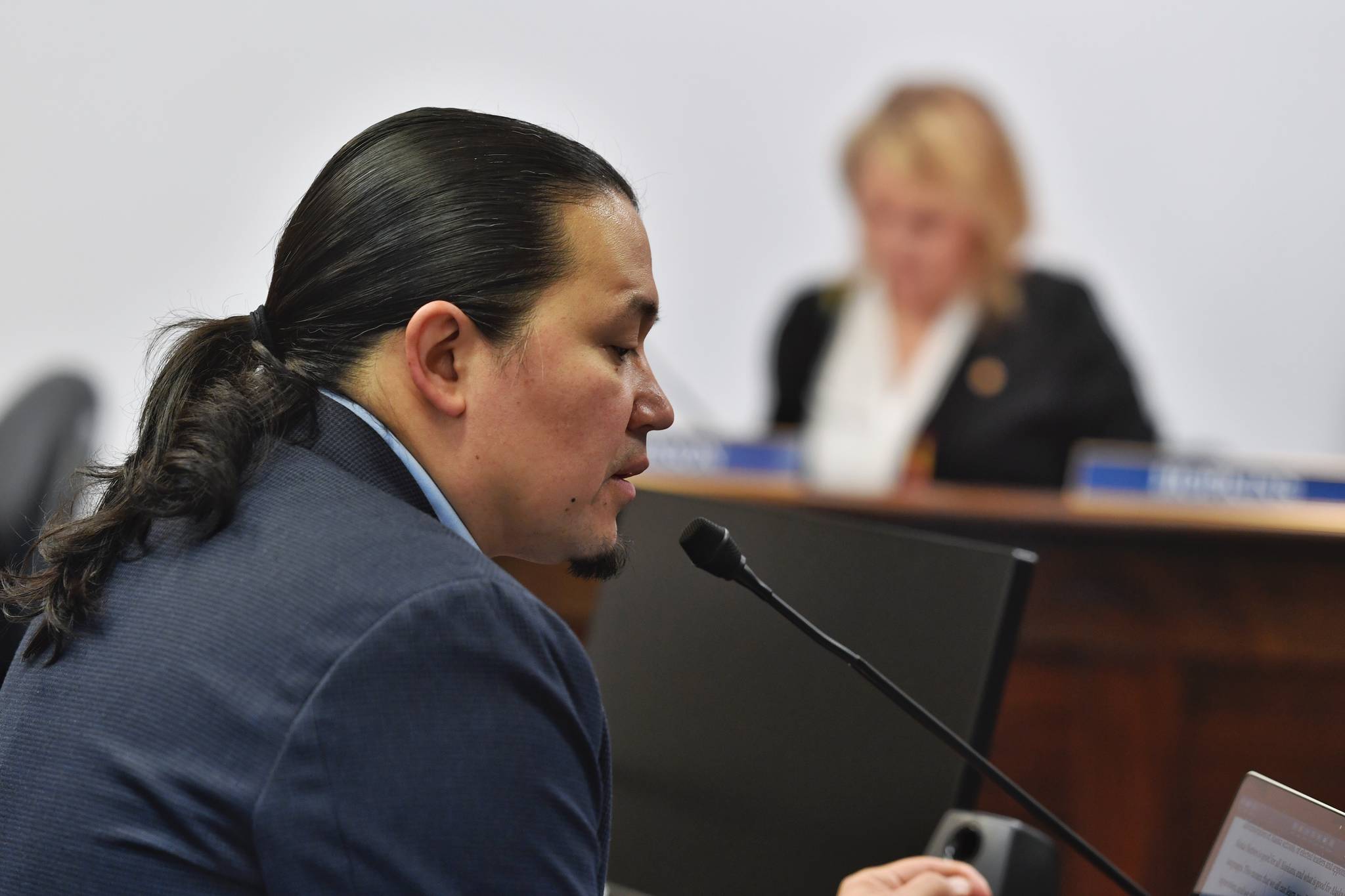Lawmakers are considering a bill that would make it easier for non-native English speakers to get their teaching certificates in Alaska.
The House Education committee held a hearing Monday to discuss House Bill 24, a bill regarding teaching in languages other than English.
They took public testimony about the bill which would allow the department to issue a limited teacher certificate, valid only in the area of expertise for which it is issued, to a person to teach Alaska Native culture, military science, vocational or technical education or any subject if the language of instruction is not English.
“We aren’t just looking for individuals who are fluent in Spanish, we are looking for teachers who … can really develop these programs,” said Katherine Gardner from the Matanuska-Susitna School District on the phone. “What HB 24 does for us is it provides an appropriate path for certification so we can employ them and retain them in these (Spanish immersion charter schools).”
She said they don’t have plans for expansion for new immersion programs in Mat-Su at this time.
Jennifer Schmidt-Hutchins, the principal of Fronteras Spanish Immersion charter school in Mat-Su also spoke about the struggles to hire and retain native Spanish speaking teachers for their school where students are taught exclusively in Spanish.
[New summit gathers many of the world’s fluent Alaska Native language speakers]
The school has a native Spanish speaker right now who for three years has been trying to complete the courses required for her teaching certificate, said Schmidt-Hutchins. The reading test is holding this teacher up. HB 24 bill would allow the native Spanish teachers to get their certifications easier, instead of hiring mainly teachers who speak Spanish as a second language and are able to pass Alaska courses for teaching certificates. She said it’s important to have teachers who not only speak Spanish, but are knowledgeable of the culture.
“What non-native (Spanish) speakers lack is the authenticity of the culture,” Schmidt-Hutchins said. “I just want to put out my support for HB 24. … I just want you to understand the human side that I’m dealing with as a principal.”
She says it will also benefit high school students who take Spanish classes.
Xh’unei Lance Twitchell, an associate professor of Native languages at University of Southeast also spoke about the importance of the bill in pursuing the goal of preserving Alaska Native languages.
“The state of Alaska has made significant steps in the past six years … but we are still in a pattern of decline regarding the health and viability of Alaska Native languages,” Twitchell said.
[Endangered language: Director talks about bringing first feature-length Haida-language film to screen]
He said the next steps after this bill should be the formation of a college of Alaska Native languages at the University of Alaska and the centralizing of Alaska Native languages by including them in standards for Alaska education.
“What is good for Alaska Native is good for all of Alaskans,” he said, adding that what people do on a daily basis has not shifted to reflect the importance of protecting Native languages.
“Language health is directly tied to physical health,” he said.
Revitalizing Alaska Native languages throughout the state would improve education success rates in Alaska for native people he said.
“We’re building immersion schools programs in Alaska for Alaska Native languages, and a bill such as this, and accompanying ones that would make it easier to open language nests, in particular are really needed right now,” he said in an interview with the Empire after the hearing.
The committee decided to hold the bill because they will have also have public testimony on it at their next hearing on Wednesday, April 3 at 8 a.m.
• Contact reporter Mollie Barnes at mbarnes@juneauempire.com.

